Supreme Court hears arguments in LGBTQ discrimination cases
Court must determine whether anti-LGBTQ discrimination is a form of sex discrimination

On Tuesday, the U.S. Supreme Court heard arguments in a pair of cases that could have historic implications for the civil rights of the LGBTQ community.
LGBTQ groups held a massive rally that drew hundreds to the steps of the building that houses the nation’s highest court, with most calling on the nine justices to affirm that LGBTQ individuals enjoy protections against sex-based discrimination under Title VII of the Civil Rights Act of 1964.
A smaller, but opposite rally, advocating against Title VII protections for LGBTQ people — most notably those concerned about what the expansion of transgender rights would mean for single-gender spaces — was also held on the steps of the court.
Oral arguments focused on three cases (since consolidated into two) in which LGBTQ plaintiffs allege they were discriminated against on the basis of their sexual orientation or gender identity: Altitude Express Inc. v. Zarda, in which the now-deceased skydiving instructor Donald Zarda was allegedly fired after revealing to a client that he was married to a man, as well as Bostock v. Clayton County, in which a juvenile courts employee alleges he was fired after his superiors found out he had joined a gay softball league; and R.G. & G. R. Harris Funeral Homes v. EEOC and Aimee Stephens, in which transgender woman Aimee Stephens claims she was fired by her employer after she decided to transition on the job and wear clothing that matches her gender identity.
Using the hashtag #RiseUpOct8, LGBTQ activists from across the country took to Twitter to express their support for the LGBTQ plaintiffs who had sued to have their rights recognized under Title VII, which prohibits discrimination “because of…sex.” Earlier in the morning, prior to oral arguments, actresses Laverne Cox and Sara Ramirez, and drag personality Peppermint arrived at the court and addressed the media in brief remarks echoing calls for the court to issue a pro-LGBTQ decision.
Many advocates noted the far-reaching implications of the case, which will either formally establish LGBTQ people as one of the classes protected from sex discrimination in the workplace, or will tie the hands of LGBTQ individuals by allowing them to be fired without cause, unless and until a future Congress passes the Equality Act or similar legislation that explicitly protects LGBTQ people.
“The stakes for hard-working LGBTQ Americans could not be higher,” GLAAD President and CEO Sarah Kate Ellis said in a statement. “These cases will not only determine whether companies can legally fire someone just for being LGBTQ, but whether our community will face legal discrimination throughout all aspects of daily life. … All fair-minded Americans should be watching these cases and loudly letting our U.S. Supreme Court Justices know that the public is against the right to discriminate.”
More than 200 major companies submitted an amicus brief urging the Supreme Court to rule in favor of Zarda, Bostock, and Stephens, arguing that nondiscrimination laws are beneficial to businesses because companies are able to recruit and retain the best talent and do not have to expend effort and substantial amounts of money to retrain replacements if productive workers relocate for more LGBTQ-affirming work environments. Additionally, more than 150 members of Congress submitted a similar brief arguing that the court should find that LGBTQ people are protected under Title VII.
One of those members of Congress, Del. Eleanor Holmes Norton (D-D.C.), spoke at the Supreme Court rally as oral arguments were underway. Norton, the first woman to chair the U.S. Equal Employment Opportunity Commission, stated that she believes sexual orientation and gender identity are essential parts of a person’s sex.
“When I chaired the EEOC, we issued nationwide sexual harassment guidelines that were later affirmed by the Supreme Court,” Norton said in a statement prior to the rally. “Consistent with the Court’s traditional broad interpretation of anti-discrimination laws, sexual orientation and gender identity are inseparable from a person’s sex, and should therefore be protected against discrimination under Title VII.”

Jessica Stern, the executive director of OutRight International, noted that the court’s actions — and its interpretation of “sex-based discrimination” would likely be copied and echoed in other countries, including many where homosexuality is criminalized. Thus, a negative decision could spell disaster for LGBTQ people abroad who may be jailed or even executed on suspicion of engaging in homosexual conduct.
Similarly, Amit Paley, the CEO and executive director of The Trevor Project, alluded to the fact that a decision against Zarda, Bostock, and Stephens could have disastrous consequences for the wellbeing and mental health of LGBTQ youth, who could feel more alienated, unsafe, or rejected as a result.
According to a 2019 survey by The Trevor Project, 76% of LGBTQ youth felt that the recent political climate had impacted their mental health or sense of self. This could, in turn, lead to higher rates of suicidal ideation if LGBTQ youth feel hopeless, alone, or deliberately targeted for discrimination.
“The stories we have heard and which we shared with the court through an amicus brief demonstrate without a doubt that discrimination against LGBTQ people is sex discrimination, and LGBTQ people are thus entitled to protection under the Civil Rights Act,” Paley said in a statement. “As the rights of LGBTQ people are discussed publicly and at the highest levels of government, The Trevor Project will always be here to let LGBTQ youth know they are not alone, that we will always fight to keep LGBTQ youth safe, and as always we will be available 24/7 for any and all LGBTQ youth in their moment of crisis.”
Both the Human Rights Campaign and Freedom for All Americans urged the Supreme Court to issue a pro-equality decision, but also noted that what is seen by many as the last resort for LGBTQ Americans — action taken by Congress to amend the nation’s civil rights laws — will still be necessary, even in the case of a positive decision.

“This decision will have very real consequences for millions of LGBTQ people across the country,” HRC President Alphonso David said. “Regardless of the eventual outcome, it’s critical that the Senate join the House in passing the Equality Act to address the significant gaps in federal civil rights laws and improve protections for everyone.”
“No matter how the Supreme Court ultimately rules, Congress must finish the job,” Masen Davis, the CEO of Freedom for All Americans, said in a statement. “The overwhelming majority of Americans from all walks of life agree that dignity and respect should never depend on who you are, who you love, or what zip code you call home. Congress must pass a law that ensures express and enduring protections for all Americans, including LGBTQ people.”
But Liberty Counsel, a conservative legal organization that opposes the recognition and expansion of LGBTQ rights, argued that the court should narrowly interpret the word “sex” as referring only to one’s assigned sex at birth, based on biological anatomy. If people wish Title VII to include protections for LGBTQ people, Liberty Counsel argues, then they should lobby Congress to amend the law.
Noting that Title VII was enacted to protect women in the workforce against discrimination, the organization argued in a statement that recognizing gender identity as protected would effectively “eviscerate” the law to allow males to subjectively claim to be female and reap benefits that would otherwise be available to biological females.
“A plain reading of federal employment law is clear that it does not include ‘sexual orientation’ or ‘gender identity.’ In fact, including ‘sexual orientation’ and ‘gender identity’ would undermine and destroy the intent of the law to protect women from discrimination,” Liberty Counsel Founder and Chairman Mat Staver said. “The original intent and meaning of the law is clear, and the common sense reading of ‘sex’ as male and female is even more obvious as Congress repeatedly refused to amend the law. When Congress refuses to amend its own law, the High Court should not re-write the law.”
According to Amy Howe, writing for the online legal website SCOTUSblog, Liberty Counsel’s arguments were echoed by lawyers for the employers and Solicitor General Noel Francisco, who argued against interpreting “sex” to refer to instances where one’s sexual orientation or gender identity is used as justification for discrimination.
Yet, at least in terms of sexual orientation, Justices Elena Kagan and Neil Gorsuch questioned whether sexual orientation could be easily separated from one’s sex. Kagan noted that Bostock and Zarda probably would not have been fired if they were women attracted to men. Similarly, when Francisco argued that there is a difference between sex and sexual orientation, Gorsuch responded that at least one contributing cause of the men’s firings does appear to be based on their sex.

However, in terms of the Harris Funeral Homes case, David Cole of the American Civil Liberties Union was met with more skepticism from some of the high court’s conservatives when he argued that Stephens’ firing was based, in part, on her failure to conform to her employer’s notions of sex-based stereotypes.
According to SCOTUSblog: “Gorsuch conceded that the text of Title VII was ‘close.’ But, he asked Cole, should the justices consider the ‘massive social upheaval’ that would follow a ruling for the plaintiffs? Given the possibility that Congress did not consider this issue, Gorsuch posited, it might be a more appropriate task for Congress, rather than the judicial branch.”
Similarly, Justice Samuel Alito raised the question of whether a decision in favor of Stephens would pave the way for allowing transgender athletes to compete on female sports teams. Cole rejected that notion, saying that regulations issued under Title IX specifically allow sex-segregated teams in some circumstances, and therefore, the question would have to deal with how those regulations apply to transgender athletes.
John Bursch, the lawyer who argued on behalf of the funeral home, raised a number of “what-if” scenarios, arguing that a decision in favor of Stephens would force an overnight shelter for women to hire a transgender woman, even if some of the women at the shelter had been the victims of domestic violence or rape. But liberal justice Stephen Breyer dismissed Bursch’s “parade of horribles” and opined that it’s up to the court to determine whether anti-trans discrimination is prohibited by Title VII’s ban on discrimination “because of sex.”
Following oral arguments, Gregory Nevins, senior counsel and director of the Employment Fairness Project for Lambda Legal, expressed optimism over the justices’ questions.
“If the Court simply applies the law as written, LGBTQ workers win,” Nevins said in a statement. “The text of Title VII is as clear as day: if an employer refuses to hire, dismisses, or mistreats an employee ‘because of’ that employee’s sex, they are in violation of the law. In these three cases, and in so many others, LGBTQ employees have been punished simply for not conforming to the employers’ sex-based stereotypes about how they should behave or who they should be attracted to. The Court has the opportunity to set the record straight and it’s time.”
Read more:
“The Color Purple” actress sues after being fired for past anti-gay Facebook posts
West Point, Va., teacher sues over firing for refusing to use trans student’s correct pronouns
Federal judge says Catholic adoption agency has interest in turning away gay couples
Support Metro Weekly’s Journalism
These are challenging times for news organizations. And yet it’s crucial we stay active and provide vital resources and information to both our local readers and the world. So won’t you please take a moment and consider supporting Metro Weekly with a membership? For as little as $5 a month, you can help ensure Metro Weekly magazine and MetroWeekly.com remain free, viable resources as we provide the best, most diverse, culturally-resonant LGBTQ coverage in both the D.C. region and around the world. Memberships come with exclusive perks and discounts, your own personal digital delivery of each week’s magazine (and an archive), access to our Member's Lounge when it launches this fall, and exclusive members-only items like Metro Weekly Membership Mugs and Tote Bags! Check out all our membership levels here and please join us today!








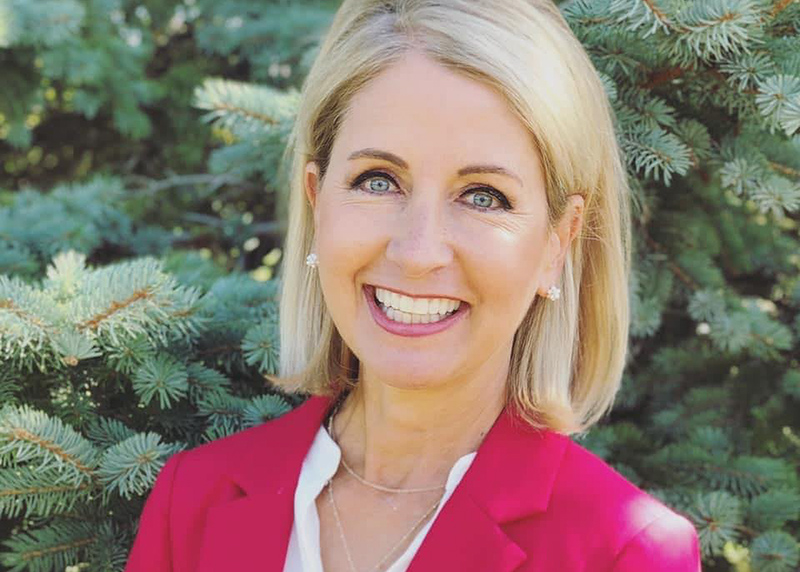
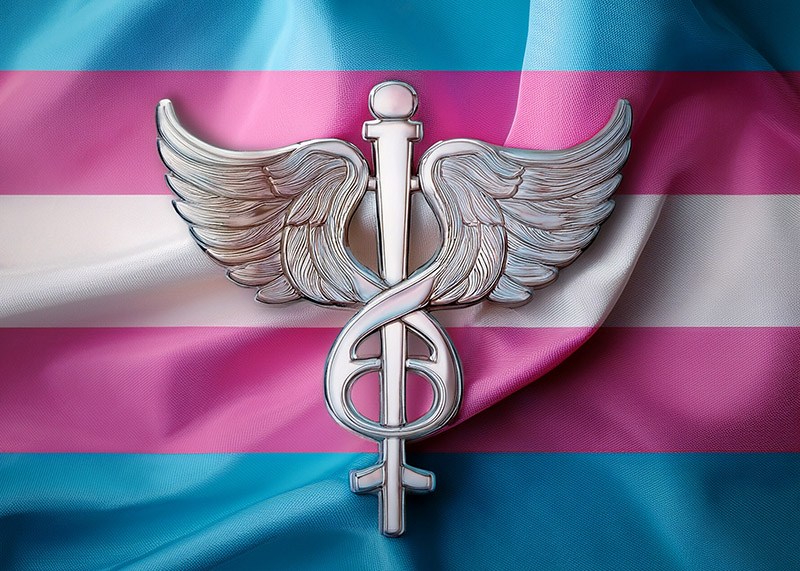














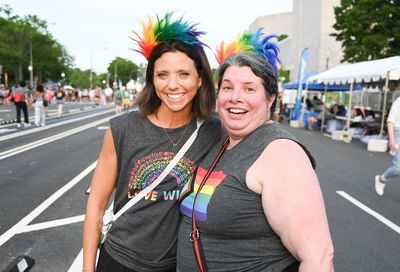

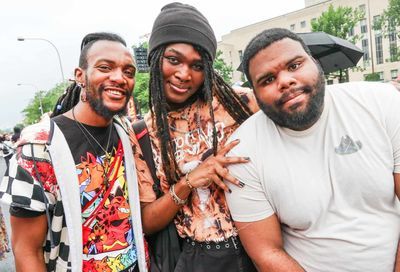


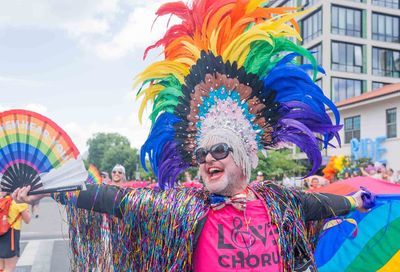
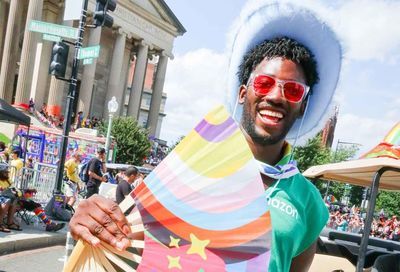
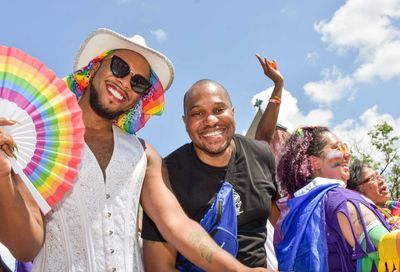
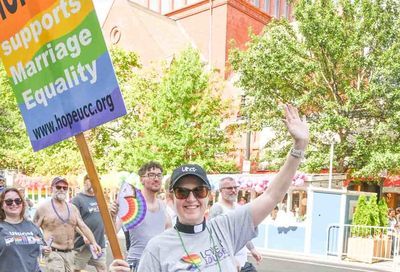
You must be logged in to post a comment.